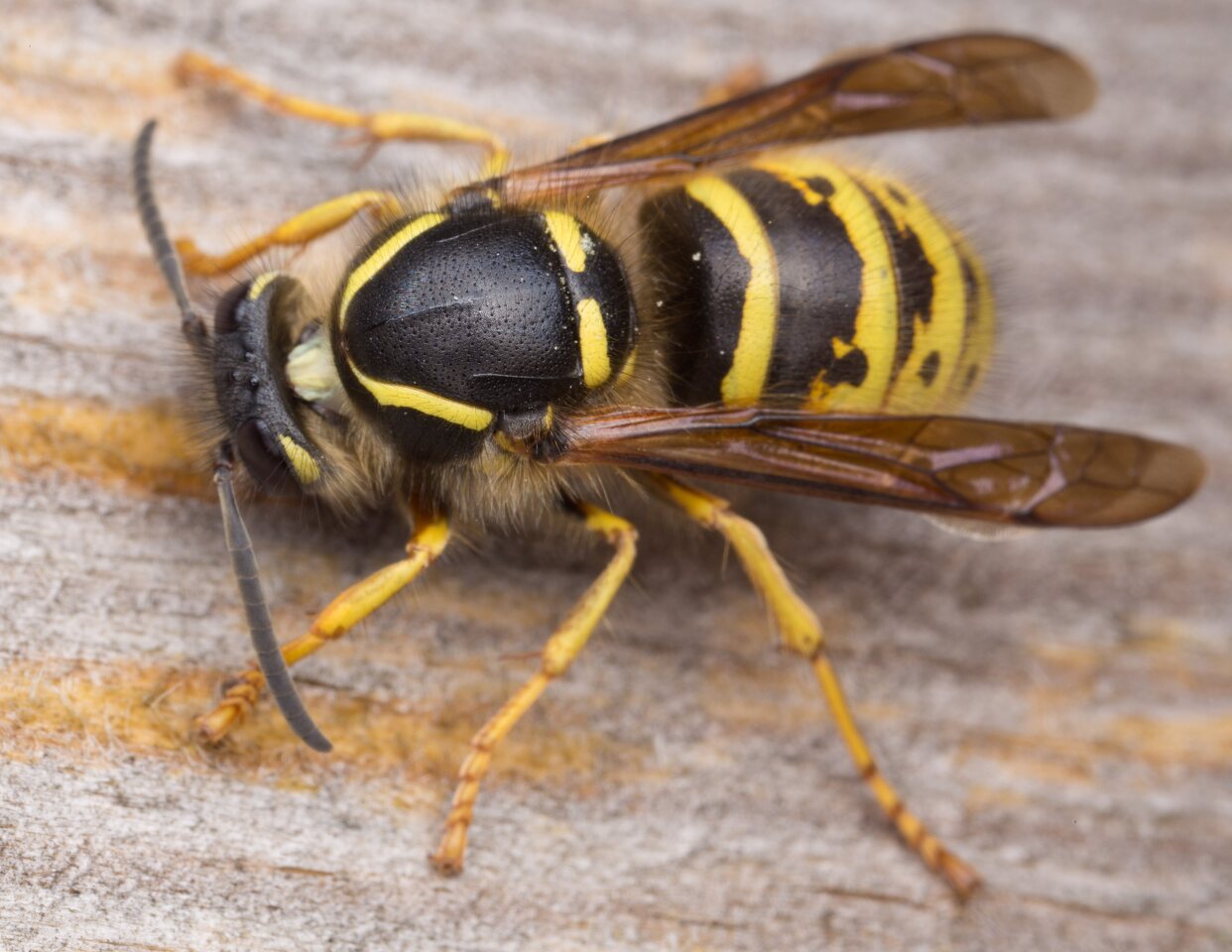
Vespula vulgaris · paprastoji vapsva
- common wasp
- Gemeine Wespe
- paprastoji vapsva
- parastā lapsene
- osa pospolita
https://en.wikipedia.org/wiki/Vespula_vulgaris Vespula vulgaris is a eusocial vespid that builds its tan paper nest in or on a structure capable of supporting it. A founding queen searches for a hollow tree, wall cavity, rock crevice, or even a hole made by other animals to build a nest. One colony cycle lasts for about 6–11 months and each colony cycle produces around 3,000–8,000 larvae. The extraordinary adaptation skills of V. vulgaris enable it to live in a wide range of habitats, from very humid areas to artificial environments such as gardens and human structures.
It is very similar to Vespula germanica, except when they are seen head on, as the V. vulgaris face lacks the three black dots of V. germanica. Instead, each has only one black mark on its clypeus, which is usually anchor or dagger-shaped. In addition, identification of this species may be difficult because the black mark on its clypeus can sometimes appear broken, making it again look similar to V. germanica.
V. vulgaris is a Palearctic species. It is invasive in New Zealand and Australia, and South America. Until 2010, it was thought to be in North America as well, but molecular and morphological data showed that specimens identified as V. vulgaris there were Vespula alascensis, which had previously been considered a taxonomic synonym, but is now considered a separate species.
Similarly to other Vespulas, Vespula vulgaris feed on animal preys such as caterpillars to feed their developing larvae and carbohydrates, such as nectar and sweet fruits, to satisfy their own energy requirements.
Kūno ilgis 17–20 mm. Dryžuota juodais ir ryškiai geltonais dryžiais. Lizdą įrengia iš sukramtytos medienos palėpėse, drevėse, žemėje. Lizde gali gyventi 3000–8000 individų. Suaugėliai minta pernokusiais vaisiais (obuoliais, kriaušėmis, slyvomis ir kt.), uogomis, medumi. Lervas maitina sugautais ir sukramtytais vabzžiais, vikšrais.
‥
0 comments
Add a comment
Comments